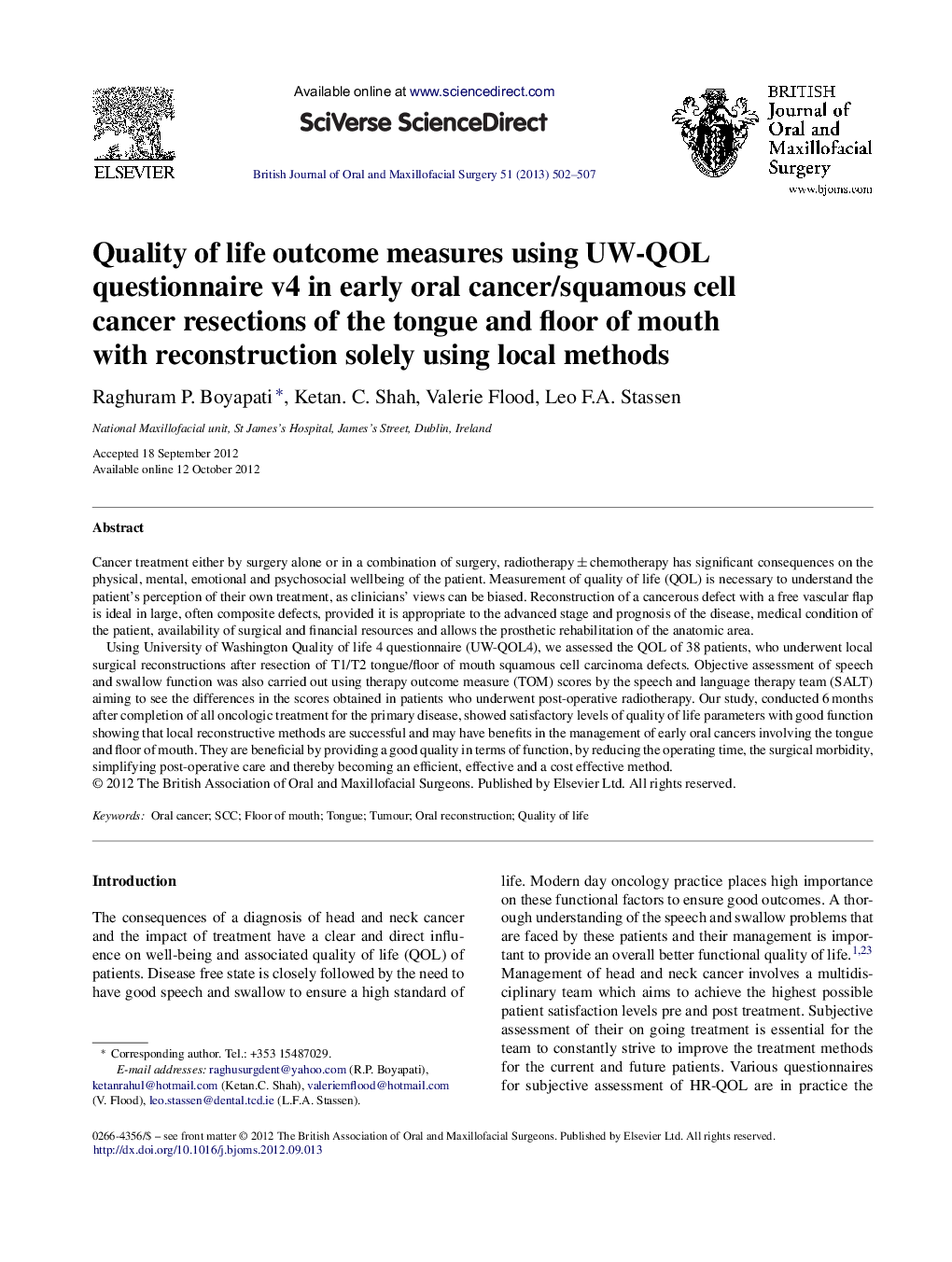| Article ID | Journal | Published Year | Pages | File Type |
|---|---|---|---|---|
| 3123432 | British Journal of Oral and Maxillofacial Surgery | 2013 | 6 Pages |
Cancer treatment either by surgery alone or in a combination of surgery, radiotherapy ± chemotherapy has significant consequences on the physical, mental, emotional and psychosocial wellbeing of the patient. Measurement of quality of life (QOL) is necessary to understand the patient's perception of their own treatment, as clinicians’ views can be biased. Reconstruction of a cancerous defect with a free vascular flap is ideal in large, often composite defects, provided it is appropriate to the advanced stage and prognosis of the disease, medical condition of the patient, availability of surgical and financial resources and allows the prosthetic rehabilitation of the anatomic area.Using University of Washington Quality of life 4 questionnaire (UW-QOL4), we assessed the QOL of 38 patients, who underwent local surgical reconstructions after resection of T1/T2 tongue/floor of mouth squamous cell carcinoma defects. Objective assessment of speech and swallow function was also carried out using therapy outcome measure (TOM) scores by the speech and language therapy team (SALT) aiming to see the differences in the scores obtained in patients who underwent post-operative radiotherapy. Our study, conducted 6 months after completion of all oncologic treatment for the primary disease, showed satisfactory levels of quality of life parameters with good function showing that local reconstructive methods are successful and may have benefits in the management of early oral cancers involving the tongue and floor of mouth. They are beneficial by providing a good quality in terms of function, by reducing the operating time, the surgical morbidity, simplifying post-operative care and thereby becoming an efficient, effective and a cost effective method.
